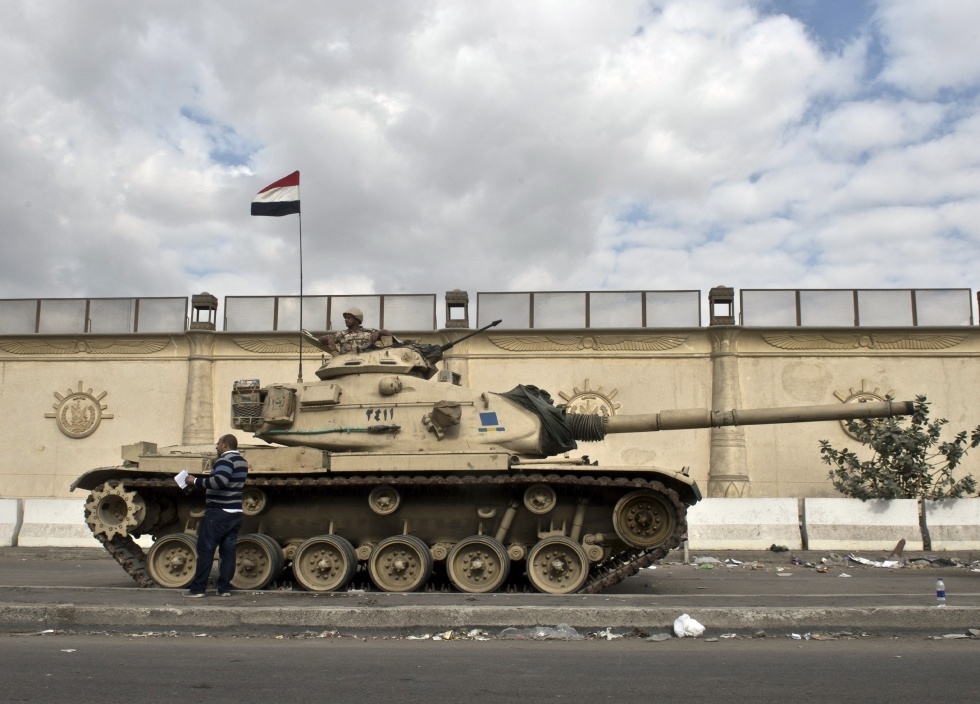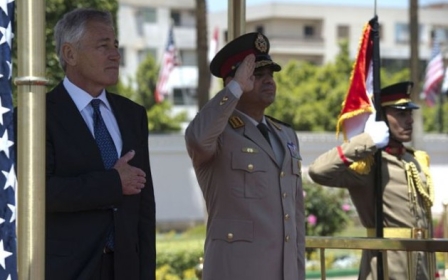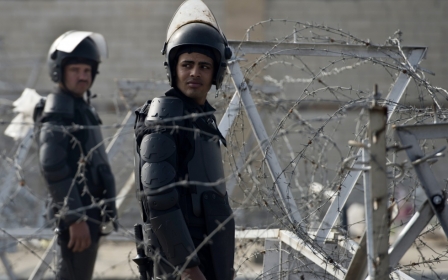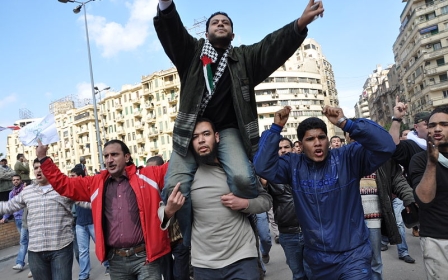16,000 Cairo prisoners to stage hunger strike

Around 16,000 prisoners decided to stage a hunger strike in 11 jails next week in protest against what they describe as "maltreatment" in their jails, an independent rights group said.
The rights group "Detainees of Freedom in Egypt's Prisons" said the prisoners, all arrested in the turmoil that gripped the country since the ouster of president Mohamed Morsi by the army last year, decided to start the strike on April 30 to put pressure on the authorities to stop torture inside the prisoners and release “innocent” detainees.
This is the latest of several hunger strikes carried out by prisoners in Egypt since the ouster of Mohammed Morsi in July 2013. Last month, 1500 prisoners at the Abu Zaabal prison in the Nile Delta went on hunger strike, in protest against mistreatment by the authorities and the "politically motivated" nature of their imprisonment.
MEE has obtained exclusive reports of routine torture and abuse in Egypt's jails, although the authorities have repeatedly denied claims that they are specifically targetting members of the now outlawed Muslim Brotherhood.
"There is coordination among prisoners in the 11 jails on the strike," Haytham Abo Khalil, the director of NGO Victims Center for Human Rights, told Anadolu Agency.
The Brotherhood's Freedom and Justice Party said in a Thursday statement that its imprisoned members are subject to violations committed by the current authorities.
"All detainees complain against deprivation from food and medicine," the party said in its statement. They also said that prisoners are allowed to enter toilets only one time and for five minutes each and that prisoners' relatives were also subjected to maltreatment when they go to prisons for visits.
There is not a specific survey of the number of people put in jail on the background of their opposition to Morsi's ouster. Both Islamist and secular opponents of the military-run government have come in for arrest and imprisonment.
The pro-Morsi National Alliance for the Defense of Legitimacy puts the number of political detainees at 22,000.
Egypt's military-backed authorities have rounded up hundreds of the Brotherhood's senior and mid-ranking members, hundreds of whom remain in detention.
Supporters of Mohamed Morsi have pressed a protest campaign since his overthrow last July, despite an extensive crackdown that has killed more than 1,400 people and imprisoned thousands.
Journalist on hunger strike
The family of an Al-Jazeera reporter detained in Egypt since August and on hunger strike since January 21 said on Wednesday his health is deteriorating and called for his release.
Abdullah Elshamy, a journalist for the pan-Arab satellite news network, was arrested on August 14 when police dispersed supporters of ousted president Mohamed Morsi at the massive Rabaa Al-Adawiya protest camp in Cairo, killing hundreds in clashes.
"I call upon the public prosecutor, who is a father, to answer the plea of a mother by releasing Abdullah today," Thuraya Elshamy said at a news conference organised by Al-Jazeera in Doha.
"My son is a journalist -- journalism is not a crime," she said.
Elshamy's father urged action to save the life of his son, stressing that "his health has deteriorated due to the hunger strike".
Elshamy, and three other journalists for Al-Jazeera English including Egyptian-Canadian Mohamed Fadel Fahmy and Australian Peter Greste and producer Baher Mohamed, face charges of spreading news that falsely sought to portray Egypt in a state of "civil war" and colluding with Morsi's Muslim Brotherhood.
Middle East Eye propose une couverture et une analyse indépendantes et incomparables du Moyen-Orient, de l’Afrique du Nord et d’autres régions du monde. Pour en savoir plus sur la reprise de ce contenu et les frais qui s’appliquent, veuillez remplir ce formulaire [en anglais]. Pour en savoir plus sur MEE, cliquez ici [en anglais].




